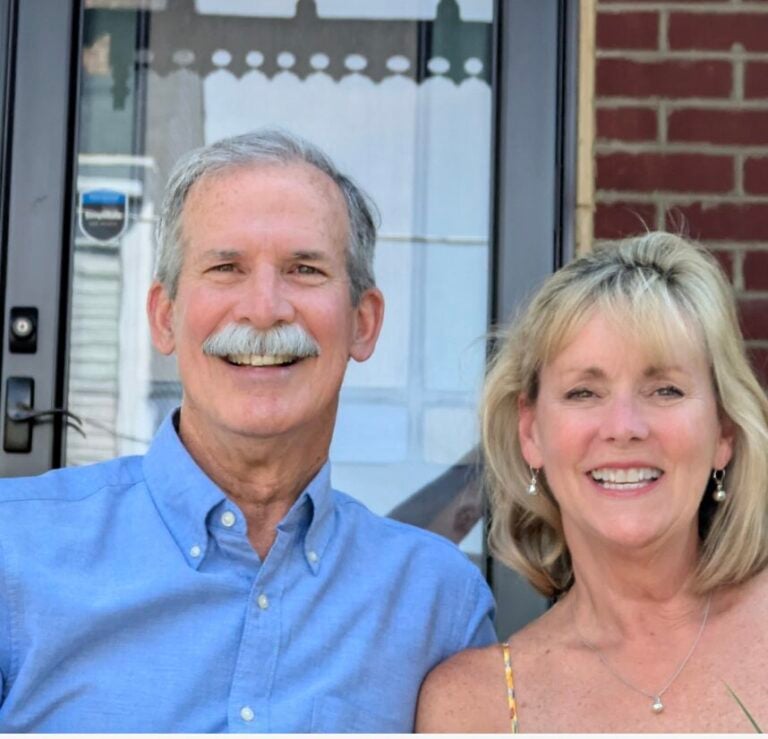By Melissa Patrick
Kentucky Health News
FRANKFORT — A bill to ban smoking in public places and places of employment is headed to the House floor yet again, and its sponsor says it will finally get a vote. But its chances in the Senate remain doubtful.
“I feel very confident that we will get a floor vote,” Rep. Susan Westrom, D-Lexington, five-year sponsor of the legislation, said after Thursday’s committee meeting. “I am shooting for next Wednesday.”
House Bill 145 passed the Health and Welfare Committee 11-4, with all Democrats and two Republicans on the panel for it and four Republicans opposed.
Westrom said the bill is not a smoking ban, but simply asks smokers to step 15 feet outside to smoke. She said, this is “not a huge sacrifice, but the benefits are so incredible.”

The bill also requires those smoking electronic cigarettes and hookahs to step outside, which could cause a “battle,” Westrom said.
The legislation got to the House floor last year, but didn’t get a vote, and has never gotten out of committee in the Senate. Polling shows a clear majority of Kentuckians support banning smoking in indoor public places, but almost 30 percent of Kentuckians smoke, tops in the nation. The state also is No. 1 in lung cancer and deaths from it.
Two Republican senators, pediatrician Ralph Alvarado of Winchester and lawyer Julie Raque Adams of Louisville, chair of the Senate Health and Welfare Committee, sat with Westrom and Rep. David Watkins, D-Henderson, a retired physician, before the committee.
Alvarado gave an impassioned reading of his op-ed that was in the same day’s Lexington Herald-Leader to the committee. “Smoking is killing Kentucky, literally and fiscally,” he said.
He said an estimated 950 Kentuckians die every year because of secondhand smoke; exposure to it costs Kentucky more than $128 million every year; children exposed to secondhand smoke suffer from repeated ear infections, bronchitis, pneumonia and asthma; and secondhand smoke is a proven cause of heart disease, cancer and stroke in non-smoking adults.
By passing the bill, “The General Assembly can save more lives with this legislation than I can throughout my entire medical career,” Alvarado said. Democratic Gov. Steve Beshear supports it.
Adams, who will be sponsoring the legislation in the Senate, told the committee, “We need to see a vote on the floor. We need to talk to our senators. We need to keep up the advocacy because Kentuckians deserve better.”
Senate Republican Floor Leader Leader Damon Thayer told Jack Brammer of the Herald-Leader that there is “not much sentiment” for the bill in the Senate: “Let the free market work this out.”
Republican Bob DeWeese, a doctor from Louisville, voted for the bill. He said the title of representative was fleeting, but “I’m a doctor for life.”
Newly elected Rep. George Brown Jr., D-Lexington, noted that he voted against the smoking ban in Lexington many years ago. “Since that time, I’ve had an awakening and I understand that the collective rights of citizens are much more important than those of individuals.”
Rep. Robert Benvenuti III, R-Lexington, said “liberty interests have to be balanced” between the rights of smokers to smoke in the workplace versus the rights of others to be healthier.
Newly elected Rep. Phil Moffett, R-Louisville, said “I support it at the local level and that is where is should reside,” and asked Westrom why the legislature shouldn’t just make tobacco illegal “if it is that devastating.”
Westrom suggested Moffett ask the Kentucky Farm Bureau Federation about that. She said in December that Farm Bureau has been the main obstacle to the bill.
About 5,000 farmers in Kentucky grow tobacco, a greatly reduced number from the days of the federal tobacco program, which ended 10 years ago. Farm Bureau spokesman Dan Smaldone said in December that the organization continues to oppose the legislation because it invades the private-property rights of business owners.
Asked why a farm organization cares about that, Smaldone wrote in an email, “KFB’s membership supports policy for rural issues that fall outside of the agriculture industry, including educational and economic issues that impact their local communities. The organization has policy on the issue because its membership determined it was important to take a position on it.”
As for the local approach, Westrom said after the meeting that too many local communities have not taken the initiative to pass smoking bans.
About one-third of Kentuckians are covered by strong local smoke-free laws, with 24 communities with smoke-free laws that cover all workplaces and enclosed public places, according to the Smoke-Free Kentucky Coalition website.
Westrom, Alvarado and committee Chair Tom Burch, D-Louisville, said they thought the bill would pass the House, but none were sure about the Senate. Westrom noted that Senate President Robert Stivers, R-Manchester, has been vocal against the bill.
“The wonderful thing about Sen. Stivers is that he understands how important the cancer research center is at the University of Kentucky,” Westrom said, noting Stivers’ call to reopen the 2014-16 state budget to authorize the project: “If we are going to invest that amount of money for a cancer research center, the best thing we can do . . . is make sure the entire state is setting the example of a smoke-free state.”
Smoke-Free Kentucky Chair Amy Barkley said, “If the House passes it and puts the ball in their court . . . I’m just going to be optimistic that they will listen to their voters. We know that 66 percent of the voters support a statewide smoke-free law and that crosses all parties and regions of the state.” That is the figure in the latest Kentucky Health Issues Poll; a Bluegrass Poll put the figure at 57 percent.
Public opinion will make the difference this year, Westrom said. “Some portions of the state are more that 74 percent approval; 70 percent of the people who used to smoke are in favor of this; and an average of 60 percent of those in rural areas are in favor of smoke-free.”
Kentucky Health News is an independent news service of the Institute for Rural Journalism and Community Issues, based in the School of Journalism and Telecommunications at the University of Kentucky, with support from the Foundation for a Healthy Kentucky.

















